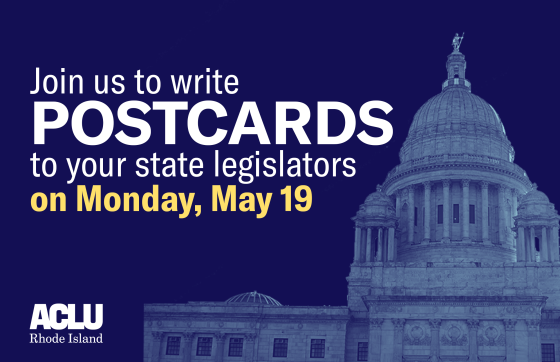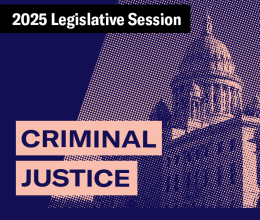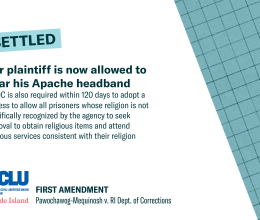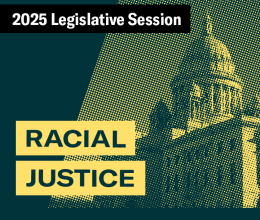Ruling in an important ACLU of Rhode Island lawsuit dealing with the rights of medical marijuana patients, R.I. Superior Court Justice Richard Licht today ruled that a Westerly fabrics company discriminated against Christine Callaghan when the offer of a paid internship was rescinded solely because of her participation in the state’s medical marijuana program. In its decision, the court held that the state’s medical marijuana law, which bars discrimination in employment against “cardholders,” applies to job applicants like Callaghan.
The lawsuit was filed in 2014 by ACLU volunteer attorney Carly Beauvais Iafrate on behalf of Callaghan, a graduate of the Savannah College of Art and Design who at the time was studying textiles and working towards a masters’ degree in that field at URI. She had participated in the medical marijuana program for almost two years to deal with frequent, debilitating migraine headaches when she applied for a paid internship at Darlington Fabrics Company.
She explained that she would not bring medical marijuana onto the premises or come to work after having taken marijuana. Although she was initially offered the internship, the company withdrew it after finding out about her medical status. As a result of not being hired, the lawsuit argued, Callaghan “was unable to find replacement summer employment, lost the benefit of a major networking opportunity with one of the only companies left in Rhode Island in her field, lost an important and unique experience that Defendants were offering, was forced to disclose her medical marijuana status to her professors, and her ability to graduate on time was placed into jeopardy as a result of having to try to find another internship at the last minute.”
The lawsuit argued that “a potential employer’s failure to hire a medical marijuana patient because of, or related to, his or her status as a medical marijuana user and/or cardholder” constitutes disability discrimination in violation of the RI Civil Rights Act, and also violates the medical marijuana law, which protects cardholders from discrimination in employment. In his ruling, the judge agreed. Responding to the company’s argument that they didn’t discriminate against Callaghan because she couldn’t pass a drug test, not because she was a cardholder, the judge wrote:
[T]his practice would place a patient who, by virtue of his or her condition, has to use medical marijuana once or twice a week in a worse position than a recreational user. The recreational user could cease smoking long enough to pass the drug test and get hired . . . allowing him or her to smoke recreationally to his or her heart’s content. The medical user, however, would not be able to cease for long enough to pass the drug test, even though his or her use is necessary to “treat[] or alleviat[e] pain, nausea, and other symptoms associated with certain debilitating medical conditions.”
The judge also rejected the company’s argument that Callaghan was not discriminated against on the basis of disability, but solely because of her marijuana use. But the judge said:
This distinction breaks down upon further examination. Defendants essentially ask this Court to completely separate the medical condition from the treatment, which would circumvent the broad intent of RICRA. However, the only reason a given patient cardholder uses marijuana is to treat his or her disability. This policy prevents the hiring of individuals suffering disabilities best treated by medical marijuana.
The judge acknowledged that the company did not have to accommodate any use of marijuana in the workplace, but that is not what this case was about.
Plaintiff Callaghan said today: “I would like to thank the ACLU and Carly for representing me in this matter, as without their aid I would have had no recourse. I am also thankful to Judge Licht for upholding my right to take medicine without fear of losing or being denied a job.”
ACLU attorney Iafrate added: “This decision sends a strong message that people with disabilities simply cannot be denied equal employment opportunities because of the medication they take. If employers were permitted to discriminate against those using medical marijuana, then the good work done by those to enact the law will be completely undone. The judge’s decision makes clear that this law is not an empty promise.”
The ACLU has been a strong supporter of the medical marijuana law.




